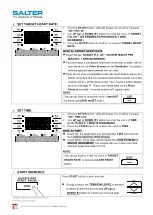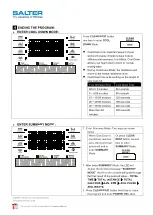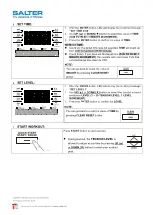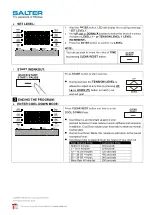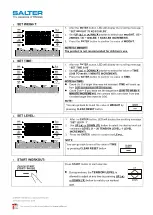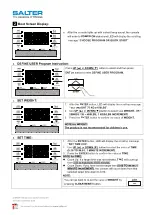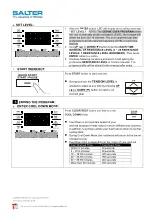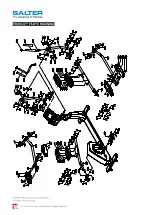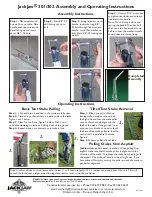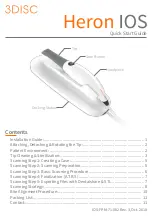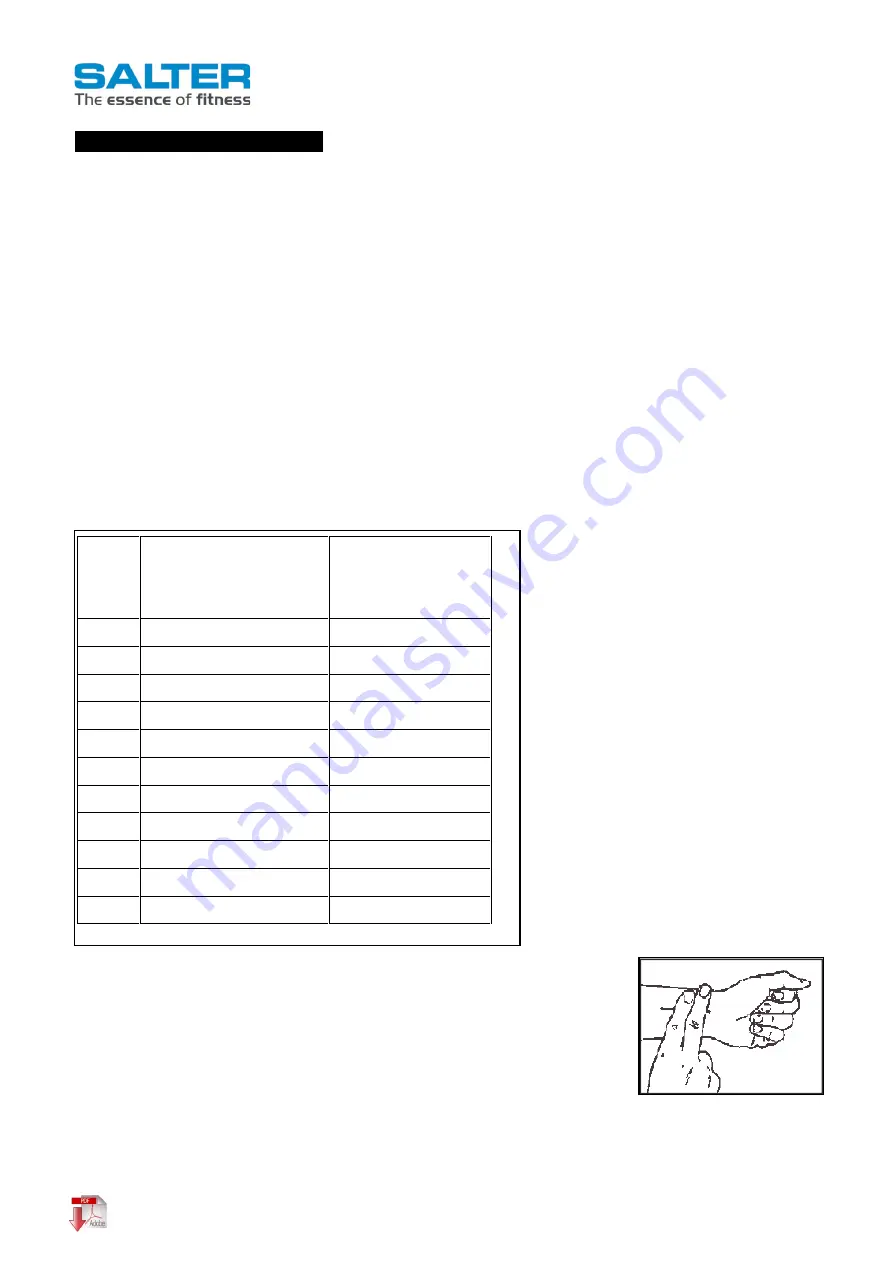
OWNER’S MANUAL V.102021 ENGLISH
M-9530 ELLIPTICAL KOR
This manual can be downloaded on
www.salter.es
CONDITIONING GUIDELINES
How you begin your exercise program depends on your physical condition. If you have been inactive for several
years, or are severely overweight, you must slowly and increase your time on the item gradually: a few minutes per
workout.
Initially, you may be able to exercise only for a few minutes in your target zone, however, your aerobic fitness will
improve over the next six to eight weeks. Don’t be discouraged if it takes longer. It’s important to work at your own
pace. Ultimately, you’ll be able to exercise continuously for 30 minutes. The better your aerobic fitness, the harder
you will have to work to stay in your target zone. Please remember these essentials:
˙ Have your doctor review your training and diet programs to advise you of a workout routine you should adopt.
˙ Begin your training program slowly with realistic goals that have been set by you and your doctor.
˙ Monitor your pulse frequently. Establish your target heart rate base on your age and condition.
˙ Set up your item a flat, even surface at least 3 feet from walls and furniture.
EXERCISE INTENSITY
To maximize the benefits of exercising, it is important to exercise with the proper intensity. The proper intensity
level can be found by using your heart rate
as a guide. For effective aerobic exercise,
your heart rate should be maintained at a
level between 70% and 85% of your
maximum heart rate as you exercise. This is
known as your target zone. You can find
your target zone in the table below. Target
zones are listed for both unconditioned and
conditioned persons according to age.
During the first few months of your exercise
program, keep your heart rate near the low
end of your target zone as you exercise.
After a few months, your heart rate can be
increased gradually until it is near the middle
of your target zone as you exercise.
To measure your heart rate manually, stop exercising but continue moving your legs
or walking around and place two fingers on your wrist. Take a six-second heartbeat
count and multiply the results by 10 to find your heart rate. For example, if your
six-second heartbeat count is 14, your heart rate is 140 beats per minute. (A
six-second count is used because your heart rate will drop rapidly when you stop
exercising.) Adjust the intensity of your exercise until your heart rate is at the proper
level.
Age
Target Heart Rate Zone
(55% ~ 90% of Max.
Heart Rate)
Average Max. Heart
Rate 100%
20
110-180 beats per minute 200 beats per minute
25
107-175 beats per minute 195 beats per minute
30
105-171 beats per minute 190 beats per minute
35
102-166 beats per minute 185 beats per minute
40
99-162 beats per minute
180 beats per minute
45
97-157 beats per minute
175 beats per minute
50
94-153 beats per minute
170 beats per minute
55
91-148 beats per minute
165 beats per minute
60
88-144 beats per minute
160 beats per minute
65
85-139 beats per minute
155 beats per minute
70
83-135 beats per minute
150 beats per minute

